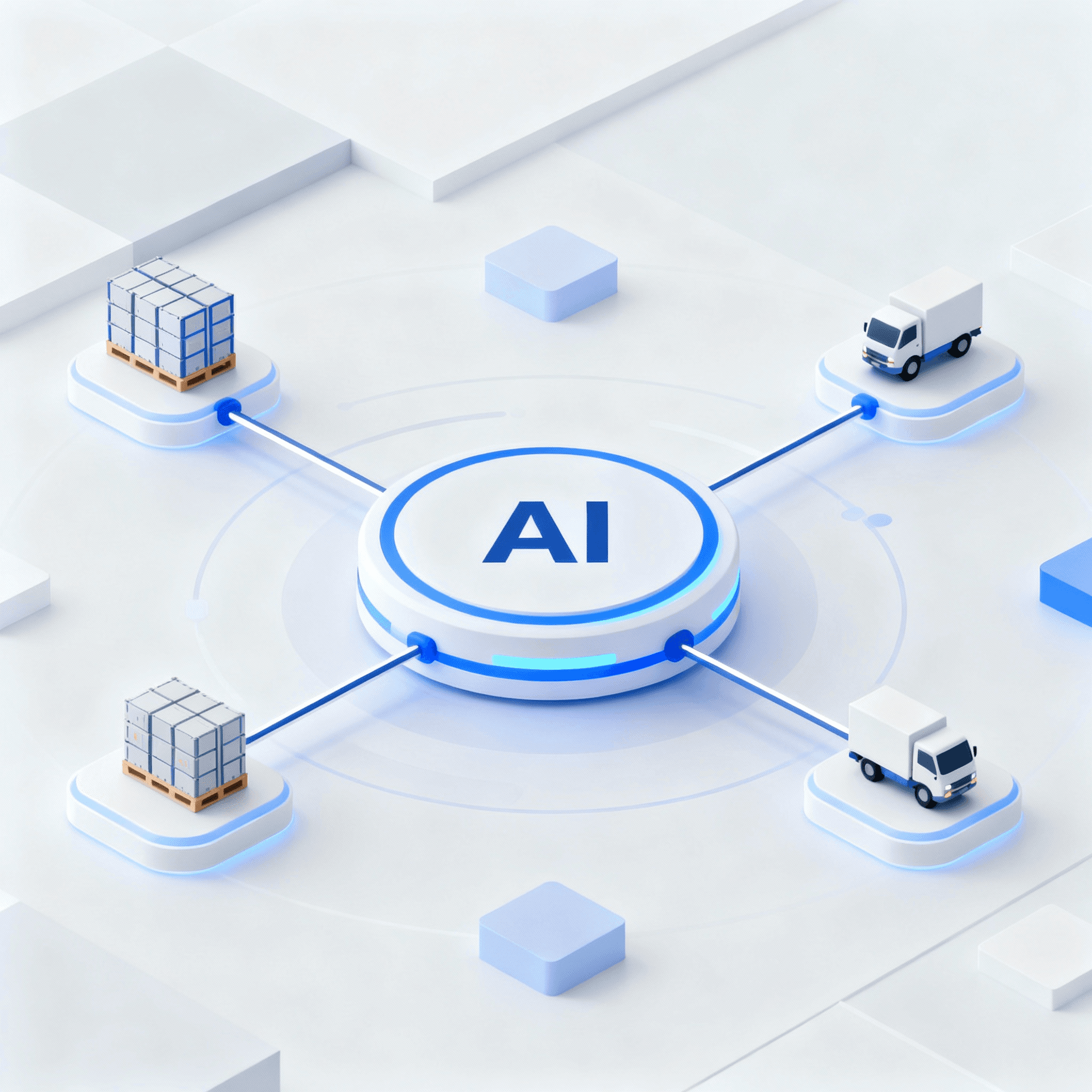Sunday, 5 Oct 2025
|
The logistics industry is increasingly turning to Artificial Intelligence (AI) to streamline operations, boost efficiency, and improve decision-making. However, integrating AI into existing Warehouse Management Systems (WMS), Transportation Management Systems (TMS), and Enterprise Resource Planning (ERP) systems presents unique challenges. These legacy systems were often designed without AI in mind, and their integration can feel like a daunting task for logistics teams.
The good news? Debales AI makes this process seamless and efficient, helping logistics companies leverage AI without overhauling their entire infrastructure. Here, we break down the challenges of AI integration with these core systems and explain how Debales AI navigates them to bring value to your logistics operations.
The Challenge:
One of the biggest hurdles in AI integration is ensuring that AI systems can seamlessly work with legacy systems like WMS, TMS, and ERP. These systems often use different data formats, making data flow and synchronization a major challenge. Without a unified data structure, AI can struggle to generate meaningful insights.
How Debales AI Solves It:
Debales AI excels at data harmonization and integration. Its powerful API ecosystem easily connects with WMS, TMS, and ERP systems, transforming disparate data into a unified format that AI tools can use. Whether it's structured data from a TMS or unstructured data from emails, Debales AI ensures smooth data synchronization, enabling real-time insights and automated decision-making across your logistics chain.
Example:
Debales AI seamlessly integrates with a TMS to provide real-time route optimization and predictive analytics while working in sync with your ERP system to update inventory levels automatically. This unified approach eliminates the need for manual data entry, minimizing errors and increasing operational speed.
The Challenge:
Many legacy systems weren’t designed to handle the complexity and real-time requirements of AI. This often leads to compatibility issues, slower processing speeds, or an inability to scale when faced with high-volume tasks like dynamic routing, inventory management, and predictive analytics.
How Debales AI Solves It:
Unlike traditional AI integration methods that may require a complete overhaul of existing systems, Debales AI integrates smoothly into your current tech stack without disrupting operations. By using cloud-native microservices and containerized applications, Debales AI works alongside your WMS, TMS, and ERP, enhancing their capabilities with AI-driven processes like real-time analytics and predictive maintenance.
Example:
Suppose your WMS system struggles to handle a high influx of incoming orders during peak seasons. Debales AI can optimize warehouse operations in real-time without needing to replace your legacy WMS. By syncing with the system, it enables smarter order fulfillment processes, ensuring that inventory levels are always accurate and shipments are never delayed.
The Challenge:
AI is only as effective as the team using it. Integrating AI into existing systems requires employees to understand how the AI tools work and how they complement existing processes. The transition from manual processes to AI-driven workflows can be overwhelming without proper training and support.
How Debales AI Solves It:
Debales AI places a strong emphasis on user-friendliness and ease of adoption. It is built to work with minimal disruption to existing workflows, offering intuitive dashboards and interfaces that are easy for your team to use. Moreover, Debales AI’s no-code setup allows logistics teams to configure workflows without needing deep technical expertise, making it accessible for employees at all levels.
Example:
With Debales AI’s intuitive interface, a logistics coordinator can easily set up email automation for tracking updates, without any prior coding knowledge. The system allows them to focus on optimizing processes rather than getting bogged down in complex setups or training sessions.
The Challenge:
As businesses grow, their legacy systems often struggle to scale efficiently. Whether it’s handling a surge in orders, expanding into new regions, or integrating with third-party tools, scaling legacy systems to meet evolving business needs can be a significant challenge.
How Debales AI Solves It:
Debales AI is designed for scalability. Whether you’re looking to scale operations to new regions, onboard additional partners, or handle growing data volumes, Debales AI grows with you. With cloud-native infrastructure, Debales AI can quickly scale to meet demand, without requiring expensive hardware upgrades or complex integrations.
Example:
As your company expands internationally, Debales AI helps integrate multiple regional WMS, TMS, and ERP systems. This unified, scalable AI platform ensures that every aspect of the supply chain is optimized, from local deliveries to global logistics operations.
The Challenge:
Many legacy systems provide historical data but fail to deliver real-time insights, which are crucial for making informed, timely decisions in logistics. Without the ability to analyze live data, AI integration can be severely limited.
How Debales AI Solves It:
Debales AI’s real-time data processing capabilities transform logistics operations by providing live decision-making support. Its advanced analytics engine processes real-time data, such as sensor readings, customer demand patterns, and inventory updates, to optimize every part of your logistics chain. Whether it’s predicting shipment delays or adjusting supply levels dynamically, Debales AI delivers insights when you need them the most.
Example:
During peak shipping seasons, Debales AI continuously analyzes incoming order volumes, weather conditions, and vehicle availability. It automatically adjusts delivery routes and inventory management strategies to avoid delays, ensuring on-time delivery even in high-pressure situations.
Integrating AI with legacy systems like WMS, TMS, and ERP doesn’t have to be a daunting task. With Debales AI, logistics leaders can ensure smooth integration that boosts operational efficiency, scalability, and data-driven decision-making—without replacing their entire tech stack. Debales AI works alongside your current systems, enhancing their capabilities and providing the intelligent insights needed for a modern logistics operation.
If you're ready to see how AI can revolutionize your logistics operations without disrupting your existing systems, Book a Demo today. Let us show you how Debales AI can seamlessly integrate with your WMS, TMS, and ERP systems for better, smarter logistics.
With Debales AI, you don’t just integrate AI—you unlock a new world of possibilities for your logistics operations, enhancing efficiency, security, and customer satisfaction.

Tuesday, 13 Jan 2026
Many logistics managers misread “productivity” as busyness. Fix the real throughput blockers to cut cost-to-serve, reduce errors, and improve service.